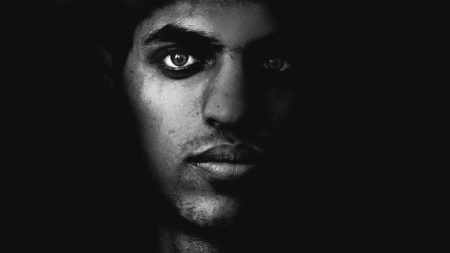by Sourav Pattanayak
Sourav Pattanayak’s Blackie is a story borne out of our fascination with the colour of our skin, and the roles it plays in our lives – the obvious and otherwise.
‘Kala padi jibu, aau kehi baha hebeni!’ (You’ll turn dark; no one will marry you then!)
If there were imperfections in his sales job, this was the one Bapi’s parents cared about the most. Selling demanded a lot of travel. Sitting on his scooter, travelling in the sun all day, exposed to the filthy urban air, the dust, the heat, Bapi was developing a tan all over – the hands, the neck, the face – the precious irreplaceable face. And this fact didn’t go down well with his parents. Nobody talked of it out loud, but dark complexion was tacitly unwelcome. Only the week before, a certain bridal ‘prospect’ had been rejected by his parents on similar grounds. Just when he had started to build a case for her. The name was Rozalin and she worked for the Ministry of Environment, Forests, and Climate Change. She always took time out of her hectic schedule to visit the local bookstore once every week. In fact, that was where they had first met – at the monthly Book Club discussion. A liking for books, a liking for cats, a liking for silence – the bricks kept falling in place. Sadly, her skin didn’t make the cut.
The skin. That’s what it was all about, thought Bapi, as he rode the scooter in the afternoon sun. It was a sunny day with a sunnier road. Most of the roadside trees had perished in the summer cyclone. And his skin had to take the fallout from it.
Navigating a familiar route, one traffic-less and bumper-less, Bapi’s thoughts rode on. The skin. He slowed the scooter down and stopped to perceive his skin. Bright and brown. There were numerous pores on it, with hair growing out of them. There were itchy bumps where mosquitoes had feasted on his blood. Then there were places which bore green signatures of veins passing underneath. He rolled up his sleeve to note the distinct change in colour. The tan. It didn’t look pretty, did it? But did everything have to look pretty?
He had never quite shown so much interest in the skin. Now that he had, he was finding it all-so-fascinating. He wondered, if he waited long enough, would he witness the act of sweat coming out of the pores? How many pores could be there on his body? Thousands? Million? And why was his skin brown anyway? Why wasn’t it fair, or dark? Or proper black like the Kenyan fast bowlers from early 2000s – folks with the darkest skins he had seen in his twenty-six years of living?
They say, an idle mind is a devil’s workshop. For Bapi, who lived alone in a rented house, an idle mind with the necessary ingredients of an unending scooter ride and accompanying solitude meant worse. He came up with a peculiar decision – to naturally tan his skin. Push it till it couldn’t be pushed further. If according to his parents, near relatives, and far relatives, dark skin was to be shunned, he himself would get one and show them. What pleasure it would be to see their crestfallen reactions! Wouldn’t that be sweet, sweet revenge?
From that day, Bapi made a habit of riding in the sun all week. He didn’t spare the weekends either, when he would engage in tree plantation and other green activities around the city. The length of his sleeves shortened. Half-pants were preferred. Roads that afforded shade were replaced by routes, often circuitous, on highways and flyovers. And the helmet was done away with, when police threat was low. Small changes, and a bit of persistence, and Bapi knew his tan job would be done.
This routine went on for the whole summer. Nothing bothered Bapi – not the shrieks of shock from his aunt who lived in the city, not the concerned tone of his boss at this sudden downturn in appearance, not the regular threats from his mother that she would come down to the city to live with him, if work pressure was having such a toll on him. He carried on unperturbed.
Somewhere in the middle of August, when the monsoons were in full bloom, without informing anybody, Bapi went and approached Rozalin and her parents. He decided that he would get their assent, and then force his will upon the collective might of his family folk. Now in his post-tanning avatar, they wouldn’t have the skin card to play anymore.
Typical of the arranged marriage scene though, Bapi was rejected without a believable reason being offered. ‘We’re almost through another proposal,’ was the curt message from Rozalin’s parents.
About two months later, he stumbled upon Rozalin at the same old bookstore. They had hardly talked in between, and immediately found themselves latch onto old threads, and immerse in deep, cheerful discussions. Until the point when the topic of their marriage came up.
‘I never really understood…,’ Bapi asked, ‘Why was I rejected?’
Rozalin chuckled and then broke into hearty laughter.
‘Well,’ she explained, ‘When you came back, you seemed to have changed. You were, you know… too dark for my parents’ liking.’
Based out of Bhubaneswar in Odisha, Sourav works on education for children and the environment, with an NGO called Unmukt Foundation. A Harry Potter fan, he’s been trying to expose himself to more diverse, unheard-of stories through the medium of reading. He writes poetry and short stories, some of which have been published in The Spark Magazine, The Bombay Review, and Indian Periodical.





